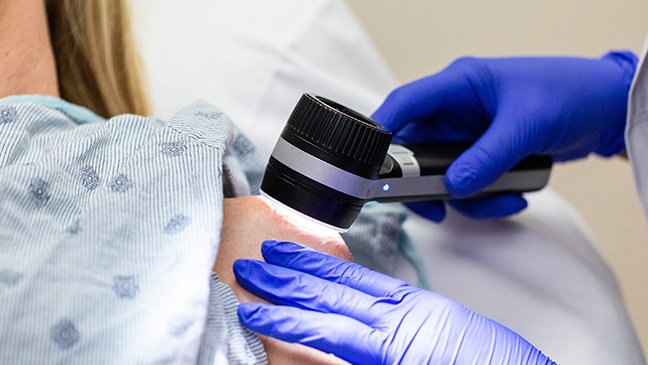- Diseases
- Acoustic Neuroma (14)
- Adrenal Gland Tumor (24)
- Anal Cancer (66)
- Anemia (2)
- Appendix Cancer (16)
- Bile Duct Cancer (28)
- Bladder Cancer (68)
- Brain Metastases (28)
- Brain Tumor (230)
- Breast Cancer (716)
- Breast Implant-Associated Anaplastic Large Cell Lymphoma (2)
- Cancer of Unknown Primary (4)
- Carcinoid Tumor (8)
- Cervical Cancer (154)
- Colon Cancer (164)
- Colorectal Cancer (110)
- Endocrine Tumor (4)
- Esophageal Cancer (42)
- Eye Cancer (36)
- Fallopian Tube Cancer (6)
- Germ Cell Tumor (4)
- Gestational Trophoblastic Disease (2)
- Head and Neck Cancer (6)
- Kidney Cancer (124)
- Leukemia (344)
- Liver Cancer (50)
- Lung Cancer (288)
- Lymphoma (284)
- Mesothelioma (14)
- Metastasis (30)
- Multiple Myeloma (98)
- Myelodysplastic Syndrome (60)
- Myeloproliferative Neoplasm (4)
- Neuroendocrine Tumors (16)
- Oral Cancer (100)
- Ovarian Cancer (170)
- Pancreatic Cancer (166)
- Parathyroid Disease (2)
- Penile Cancer (14)
- Pituitary Tumor (6)
- Prostate Cancer (144)
- Rectal Cancer (58)
- Renal Medullary Carcinoma (6)
- Salivary Gland Cancer (14)
- Sarcoma (236)
- Skin Cancer (294)
- Skull Base Tumors (56)
- Spinal Tumor (12)
- Stomach Cancer (60)
- Testicular Cancer (28)
- Throat Cancer (90)
- Thymoma (6)
- Thyroid Cancer (98)
- Tonsil Cancer (30)
- Uterine Cancer (78)
- Vaginal Cancer (14)
- Vulvar Cancer (18)
- Cancer Topic
- Adolescent and Young Adult Cancer Issues (20)
- Advance Care Planning (10)
- Biostatistics (2)
- Blood Donation (18)
- Bone Health (8)
- COVID-19 (362)
- Cancer Recurrence (120)
- Childhood Cancer Issues (120)
- Clinical Trials (624)
- Complementary Integrative Medicine (24)
- Cytogenetics (2)
- DNA Methylation (4)
- Diagnosis (230)
- Epigenetics (6)
- Fertility (62)
- Follow-up Guidelines (2)
- Health Disparities (14)
- Hereditary Cancer Syndromes (122)
- Immunology (18)
- Li-Fraumeni Syndrome (8)
- Mental Health (118)
- Molecular Diagnostics (8)
- Pain Management (62)
- Palliative Care (8)
- Pathology (10)
- Physical Therapy (18)
- Pregnancy (18)
- Prevention (892)
- Research (390)
- Second Opinion (74)
- Sexuality (16)
- Side Effects (604)
- Sleep Disorders (10)
- Stem Cell Transplantation Cellular Therapy (216)
- Support (404)
- Survivorship (322)
- Symptoms (184)
- Treatment (1772)
Nobel Week kicks off for immunotherapy innovator Jim Allison
2 minute read | Published December 06, 2018
Medically Reviewed | Last reviewed by an MD Anderson Cancer Center medical professional on December 06, 2018
As his first official act of Nobel Week, 2018 Nobel Laureate in Physiology or Medicine Jim Allison, Ph.D., on Thursday signed the bottom of a chair at Bistro Nobel in the Nobel Museum in Stockholm’s Old Town. The chair-signing is part of a traditional museum visit by Nobel winners, and launches the week’s events.
Allison, chair of Immunology at MD Anderson, along with co-winner Tasuku Honjo, M.D., Ph.D., of Kyoto University, discussed their research later in the morning at a news conference.
Allison invented immune checkpoint blockade, a therapeutic approach that treats the immune system, unleashing it to attack cancer. His research led to development of ipilimumab, known commercially as Yervoy, the first drug of its kind. Honjo was instrumental in the later development of a second drug that hits a different target on the surface of cells.
“By stimulating the ability of our immune system to attack tumor cells, this year’s Nobel Prize laureates have established an entirely new principle for cancer therapy,” Thomas Perlmann, secretary of the Nobel Committee for Physiology or Medicine, noted in announcing the award on Oct. 1.
A detailed account of Allison’s and Honjo’s research is available on the Nobel website. On Friday, the two laureates will deliver their Nobel lectures, which will be livestreamed on the Nobel website and on Youtube at 7 a.m. CST.
Traditionally, Nobel Laureates also donate artifacts to the Nobel Museum. Allison presented the museum with the following items:
- A vial representing 9H10, a mouse-model monoclonal antibody developed in his lab in 1995 to block CTLA-4, a protein on T cells that shuts down immune response
- A vial of ipilimumab from Bristol-Myers Squibb that was developed for human use based on Allison’s work
- The first page of a 1996 article in Science that reported the success of anti-CTLA-4 treatment in freeing T cells to attack cancer in mice
- The first page of a 2015 review in Cell that was co-authored by Padmanee Sharma, M.D., Ph.D., professor of Genitourinary Medical Oncology and Immunology, Allison’s longtime research collaborator and spouse
- A portrait of Allison and Sharma taken by a Dallas photographer
A series of meetings, receptions and dinners unfold over the weekend, culminating in the presentation of the Nobel Prizes in Physiology or Medicine, Physics, Chemistry and Economics by the King of Sweden at 9:30 a.m. CST on Monday, Dec. 10. The award ceremony also will be live-streamed.

Nobel Prize Winner
Jim Allison, Ph.D.
Read stories and watch videos about his groundbreaking work.





